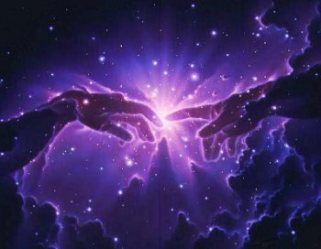 UCC members: The materials these questions relate to will be emailed to you immediately after the November 25, 2012 class. Please reflect on the passages cited and try to answer the questions on your own.
UCC members: The materials these questions relate to will be emailed to you immediately after the November 25, 2012 class. Please reflect on the passages cited and try to answer the questions on your own.
Other readers: See the Creation 2.0 page to find the materials these questions relate to.
1. Paul wrote,
(2Co 5:17 ESV) Therefore, if anyone is in Christ, he is a new creation. The old has passed away; behold, the new has come.
(Gal 6:15 ESV) For neither circumcision counts for anything, nor uncircumcision, but a new creation.
What does it mean for a Christian to be a “new creation” in light of the Creation account of Genesis 1?
____________________________________________________________
____________________________________________________________
____________________________________________________________
2. Why do you imagine Paul refers to our salvation as an act of “creation” by God? What is being created? And why is it “new”?
____________________________________________________________
____________________________________________________________
____________________________________________________________
2. John describes the beginning of the afterlife this way —
(Rev 21:1-5a ESV) Then I saw a new heaven and a new earth, for the first heaven and the first earth had passed away, and the sea was no more. 2 And I saw the holy city, new Jerusalem, coming down out of heaven from God, prepared as a bride adorned for her husband. 3 And I heard a loud voice from the throne saying, “Behold, the dwelling place of God is with man. He will dwell with them, and they will be his people, and God himself will be with them as their God. 4 He will wipe away every tear from their eyes, and death shall be no more, neither shall there be mourning, nor crying, nor pain anymore, for the former things have passed away.” 5 And he who was seated on the throne said, “Behold, I am making all things new.”
Notice that heaven comes down to earth so that God may live among his people. This is not at all what most of us imagine! And God describes himself as “making all things new”
— not necessarily destroying all things. Could John be serious here? Read the rest of chapter 21 and 22.
____________________________________________________________
____________________________________________________________
____________________________________________________________
4. Consider —
(Rom 8:20-23 ESV) 20 For the creation was subjected to futility, not willingly, but because of him who subjected it, in hope 21 that the creation itself will be set free from its bondage to corruption and obtain the freedom of the glory of the children of God. 22 For we know that the whole creation has been groaning together in the pains of childbirth until now. 23 And not only the creation, but we ourselves, who have the firstfruits of the Spirit, groan inwardly as we wait eagerly for adoption as sons, the redemption of our bodies.
Paul describes the creation itself as being “set free from its bondage to corruption.” Does this sound like the same thing as Rev 21-22?
____________________________________________________________
____________________________________________________________
____________________________________________________________
5. How do these passages fit with Genesis 1 – 3 — the creation of man and the curse resulting from his sin?
____________________________________________________________
____________________________________________________________
____________________________________________________________
6. In what sense are Christians the “firstfruits” of the resurrection? If we are the beginning of the new creation, what is the rest of the new creation?
____________________________________________________________
____________________________________________________________
____________________________________________________________
7. Read Colossians 1 – 3 (three chapters) in light of the above. How does Paul see the church being affected by the fact we’ve been made into new creations?
____________________________________________________________
____________________________________________________________
____________________________________________________________



